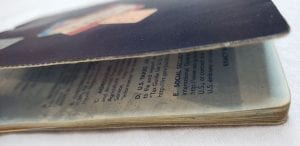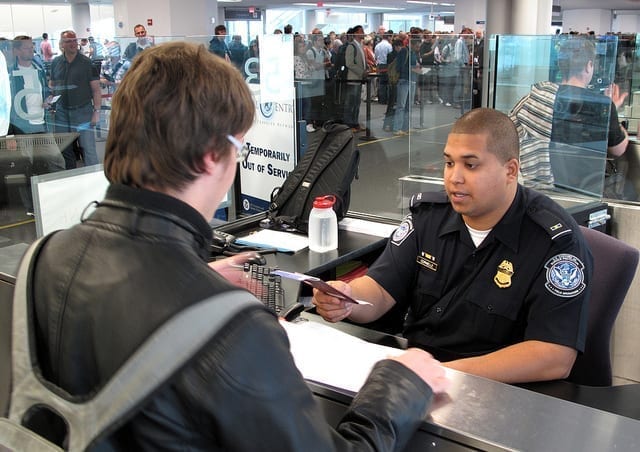The CBP’s misconduct, claims the ACLU, was a flagrant disregard of passengers’ Fourth Amendment rights.
Delta passengers have reached a settlement with U.S. Customs and Border Patrol (CBP), after a group of travelers were forced to show their identification after landing in New York.
The settlement was announced Thursday by the American Civil Liberties Union, which, along with Covington & Burling LLP, represented nine passengers in their fight against the federal government. Per its term, the CBP will stop misconstruing checks on deplaning domestic travelers as mandatory.
According to the ACLU, the initial complaint stems from a 2017 incident. That February, Delta Flight 1583 flew from San Francisco to New York’s John F. Kennedy International Airport.
Upon docking, passengers were issued a strange directive: that they could only leave the plane by letting two uniformed CBP officers inspect their identification documents. Everyone was held inside the cabin until they could clear the impromptu checkpoint, with both agents screening travelers right outside the aircraft’s cabin.
Passengers, says the ACLU, were ‘confused, nervous and afraid,’ feeling as if they had no choice but to comply with CBP’s orders. Lead plaintiff Kelley Amadei, who was traveling with her young son, said she felt “intimidated” by the officers and “confused as to why they were asking for our IDs at the end of a flight.”

“I felt like they weren’t looking for any one person because they were checking everyone,” Amadei said. “I felt violated.”
The entire ordeal appears to have stemmed from the Trump administration’s immigration crackdown. In a later statement, the CBP said it was trying to carry out an Immigration and Customs Enforcement detainer.
“An individual with a final order of removal from a federal immigration judge was scheduled to be on a flight from San Francisco to JFK on the evening of 22 February, in furtherance of the removal process,” ICE said. “It was later determined that the individual was not placed on the flight in San Francisco.”
Individuals who asked what was going on were refused any answer, with the CBP later claiming such checks are “routine.”
However, the settlement reaffirms what the ACLU had argued all along—that the U.S. Constitution protects passengers on domestic flights from baseless searches, much the same as it protects motorists and pedestrians.
“The officers did not have any legal justification for seizing and searching these passengers,” said ACLU deputy legal director Cecilia Wang in October 2017. “This is a serious erosion of our basic civil liberties.”
The Wisconsin Gazette notes that the CBP has agreed to curb its supposedly “routine” searches for domestic travelers. The agency will also issue a nationwide order, directing officers to respect Fourth Amendment protections.
And, countering its past claims, Customs and Border Patrol says it “does not have a policy or routine practice of compelling or requesting that passengers deplaning domestic flights submit to suspicionless background checks.”
If and when agents opt to ask deplaning passengers for their I.D., they’ll have to clear—in their words and actions—that cooperation is strictly voluntarily. Officers will further “provide an unimpeded path for passengers to exit the airplane,” explaining to any who ask that there can be no law enforcement consequence for refusing to participate.
On Flight 1583, flight attendants explained that passengers had to cooperate. But under the ACLU and Covington & Burley’s settlement, the CBP has to ask airline crew to say—over the plane’s intercom—that “participation is voluntary.”
Along with revising extant policy and admitting its error, CBP will compensate the plaintiffs for their legal expenses.
Sources
CBP Can’t Detain Domestic Flight Passengers for Refusing Suspicionless ID Checks
Delta Passengers Win Settlement Barring Suspicionless ID Checks
Lawsuit claims border patrol violated constitution by searching Delta plane


Join the conversation!